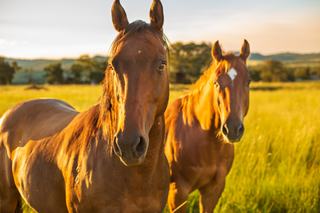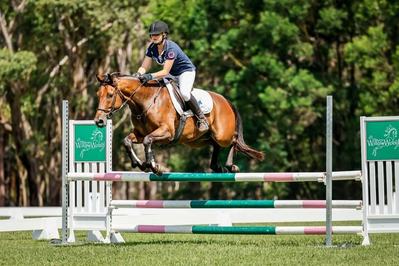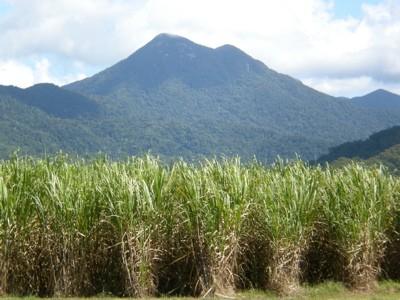Buy Horses in Australia with Farmbuy's Premium Livestock Marketplace

Your Trusted Platform for Buying Horses in Australia
Australia's equine industry represents a significant sector of agricultural commerce, with horses serving roles from working stock animals to competitive performers and recreational companions.
Farmbuy Livestock connects buyers with quality horses across every state and territory, offering unprecedented access to diverse breeds, ages, and specialisations through a secure digital marketplace.
hether you're seeking a seasoned stockhorse for cattle work, a performance quarter horse for competition, or a reliable mount for recreational riding, the platform provides comprehensive listings with verified seller information and transparent pricing structures.
The Australian Horse Industry Council estimates the national horse population exceeds 400,000 animals, with active trading occurring year-round through various sale mechanisms. Farmbuy Livestock streamlines this traditionally fragmented market by consolidating auctions, classified advertisements, paddock sales, and immediate purchase opportunities into a single, accessible platform.
Buyers benefit from detailed listing information including breeding records, performance history, veterinary documentation, and high-quality imagery that facilitates informed purchasing decisions without geographical constraints. This digital approach to livestock trading aligns with contemporary agricultural practices whilst maintaining the integrity and personal connections that characterise Australia's horse industry.

Horses Studs

Latest Horses News

Walking into the iconic Wayville Showgrounds sheep pavilion on Saturday, during the Royal Adelaide Show, was like stepping back in time for...

Queensland livestock consultant Kevin Graham, Brisbane, and his wife Jill, clock up hundreds of kilometres at this time of the year...

It is a cold and blustery winter day as the Kelly family gather in the woolshed on their Glen Holme property at Manoora.

Queensland livestock consultant Kevin Graham, Brisbane, and his wife Jill, clock up hundreds of kilometres at this time of the year...

The 80th Glen Innes Hereford sale on Friday brought together established and emerging studs to showcase value for money from a bevvy of...

A Clarence River cattleman with a sharp eye for type and a memory to match, Michael Fahey from Nettle Creek was sent off in a grand...

The average price paid for a horse at this year's Elders Ag-Grow Elite Horse Sale in Emerald was up by $6266 on the 2024 sale, reflecting...

Steeds for all ages and levels of experience will be offered at the Elders Ag-Grow Elite Horse Sale from 8am on Friday, June 27.

The 2025 Nutrien Northern Performance Horse Sale saw a notable lift in both average and top price figures during its annual event held in...

A well-respected Merino stud master has laid down his raddle and classing notes, stepping back from his role after building on decades of...

Records were broken at the Nutrien Supreme Sale held at the Toowoomba Showgrounds over the weekend as confidence in the performance horse...

Strong potential has seen the younger entry overcome its older competition in the Dorper judging at the Sydney Royal Easter Show on April...
Choose Your Preferred Purchase Method
Understanding the various pathways to horse ownership enables buyers to select the approach that best matches their timeline, budget, and assessment requirements.
Auction environments provide competitive bidding opportunities where horses are presented in scheduled events, allowing buyers to observe multiple animals consecutively and secure purchases through transparent price discovery mechanisms—major auction houses often feature catalogues weeks in advance, permitting thorough research of bloodlines and performance records.
The Buy Now option appeals to purchasers seeking immediate acquisition at fixed prices, eliminating negotiation delays and providing certainty around transaction costs, particularly advantageous when specific breed characteristics or training levels are non-negotiable requirements.
Classified listings facilitate direct communication between buyers and sellers, enabling flexible negotiation on price and terms whilst allowing for extended inspection periods and customised purchase agreements that suit both parties' circumstances.
Paddock Sale arrangements permit prospective buyers to view horses in their home environment, observing natural behaviour, herd dynamics, and property conditions that provide valuable context about animal husbandry standards and temperament characteristics not always evident in formal presentation settings.
Dispersal sales occur when breeders or owners liquidate entire or substantial portions of their horse operations, frequently presenting exceptional value opportunities as sellers prioritise timely clearance over maximum individual returns—these events, whilst less common, can yield premium bloodstock at accessible price points for astute buyers.
The Australian Livestock & Property Agents Association, operating across multiple state offices, maintains professional standards for livestock transactions and provides licensed agent services that ensure regulatory compliance throughout the purchasing process, offering buyers additional confidence regardless of which acquisition method they select.
Popular Australian Horse Breeds
Australian Stock Horse
The Australian Stock Horse represents a distinctly national breed developed through selective breeding programmes that commenced during early European settlement, combining genetics from Thoroughbred, Arabian, and working horse lines to create an animal exceptionally suited to Australia's demanding agricultural conditions and diverse climate zones.
These horses demonstrate remarkable versatility, performing admirably in cattle work, competitive campdrafting, show jumping, dressage, and recreational trail riding whilst maintaining the soundness and even temperament required for daily station work across extensive properties.
The Australian Stock Horse Society, established in 1971 and maintaining registry offices in New South Wales, oversees breeding standards and maintains comprehensive studbooks that preserve genetic diversity and performance lineage documentation. Physically, stockhorses typically stand between 14.2 and 16 hands, exhibiting strong hindquarters, well-sloped shoulders, and intelligent heads that reflect their Arabian heritage—coat colours span the full spectrum, from bay, chestnut, and grey to distinctive pinto and appaloosa patterns.
Their renowned 'cow sense' makes them invaluable for mustering operations, whilst their trainability and willing nature suit riders across experience levels, from children developing foundational horsemanship skills to professional competitors at elite levels. Market prices for registered Australian Stock Horses range from $3,000 for young, unstarted prospects to $25,000 or more for proven performance horses with established competition records or exceptional breeding potential, with working horses averaging $8,000 to $15,000 depending on age, training, and demonstrated ability.
Australian Quarter Horse
The Australian Quarter Horse descends from American Quarter Horse bloodlines imported during the mid-twentieth century, adapted through selective breeding to thrive in Australian conditions whilst retaining the explosive speed, agility, and calm disposition that characterises this world-renowned breed.
The Australian Quarter Horse Association, headquartered in Queensland and affiliated with the American Quarter Horse Association, maintains rigorous registration standards ensuring genetic authenticity and breeding quality across the national herd.
These compact, heavily muscled horses excel in western performance disciplines including barrel racing, reining, cutting, and ranch work, with their natural athleticism and quick reflexes making them favourites for rodeo competition and working cattle operations requiring rapid directional changes and sustained burst speed. Quarter horses typically measure 14 to 16 hands and display distinctive muscular development through the chest, shoulders, and hindquarters—characteristic heavily muscled appearance that enables the rapid acceleration and stopping ability prized in both competitive and working contexts.
Their docile temperament and intelligence facilitate training across diverse applications, from youth competition horses to professional performance animals commanding six-figure valuations at elite sales. Entry-level registered Quarter Horses generally sell from $4,000 to $8,000, whilst horses with performance records or superior bloodlines command $15,000 to $40,000, with exceptional breeding stallions and proven competition horses occasionally exceeding $100,000 at specialist dispersal sales.
Find Horses Across All Australian States and Territories
Geographic distribution of horse trading opportunities spans Australia's diverse climate zones and agricultural regions, with each state presenting unique characteristics that influence breeding programmes, pricing structures, and animal availability throughout the year.
New South Wales hosts the nation's largest horse population, with significant breeding operations concentrated in the Hunter Valley, New England, and Southern Tablelands regions where temperate conditions and established pastoral infrastructure support diverse equine enterprises.
Victoria's horse industry centres around the Murray Valley and Gippsland areas, with strong representation in both performance and recreational sectors, whilst the state's proximity to Melbourne provides access to competitive show circuits and training facilities.
Queensland combines tropical coastal breeding programmes with extensive inland cattle station operations, producing horses adapted to heat and humidity alongside working animals suited to rough terrain and long mustering distances.
South Australia features horses bred for both agricultural work and competitive pursuits, with the Adelaide Hills and Barossa regions supporting quality breeding operations, whilst Western Australia's vast pastoral zones produce hardy working horses alongside Perth's competitive performance sector.
Tasmania's temperate climate supports diverse breeding programmes, with horses often exhibiting robust constitutions and even temperaments developed in the island's varied terrain, whilst both the Northern Territory and Australian Capital Territory maintain smaller but dedicated horse populations serving local agricultural and recreational requirements.
Equine Transport Services Australia, operating nationwide with full animal welfare transport accreditation, facilitates interstate purchases by providing professional livestock logistics that ensure horses travel safely regardless of distance, removing geographic barriers that historically limited buyer options.
Expert Tips for Buying Horses
Successful horse acquisition requires systematic evaluation procedures that extend beyond initial visual assessment, beginning with comprehensive veterinary pre-purchase examinations conducted by practitioners experienced in equine medicine—the Australian Veterinary Association's Equine Chapter maintains national standards for these assessments, which typically include musculoskeletal evaluation, radiographic imaging of critical joints, cardiovascular fitness testing, and respiratory function analysis.
Understanding horse temperament and suitability involves honest appraisal of your riding ability, intended use, and available time for training and maintenance, with experienced buyers often recommending trial periods where permitted to assess compatibility between horse and rider under various conditions. Verification of registration papers and breeding documentation through official breed registries confirms genetic authenticity and ownership history, whilst also revealing performance records and offspring quality for breeding prospects—unregistered horses can offer value, but registered animals typically command higher resale values and provide access to competitive opportunities requiring certified pedigrees.
Health indicators including coat condition, eye brightness, hoof quality, body condition scoring, and behavioural responsiveness during handling provide immediate insights into current care standards and underlying health status, with particular attention to dental maintenance, parasite control protocols, and vaccination currency.
Budget considerations must encompass not only purchase price but ongoing costs averaging $4,000 to $8,000 annually for agistment, farrier services, veterinary care, feed supplementation, and insurance coverage—underestimating these recurring expenses frequently leads to ownership challenges that disadvantage both horse and owner.
Transport arrangements require coordination with licensed operators familiar with livestock handling regulations and animal welfare requirements, whilst understanding seller guarantees and establishing clear purchase terms protects both parties and facilitates resolution should unexpected health or behavioural issues emerge post-purchase.
Why Choose Farmbuy for Your Horse Purchase
Farmbuy Livestock establishes Australia's premier digital marketplace for equine transactions by combining comprehensive listing coverage with verified seller credentials, secure communication channels, and intuitive search functionality that filters results by breed, location, price range, and purchase method.
The platform provides buyers access to the broadest possible selection of horses across all disciplines, ages, and price points—from first-time buyers seeking reliable mounts under $5,000 to professionals sourcing elite competition prospects or breeding stock.
Farmbuy Livestock's integration with Australia's agricultural community extends beyond simple marketplace functionality to provide educational resources, buyer guides, and industry news that inform purchasing decisions and foster ongoing engagement with the equine sector.
Whether you're replacing working horses on a cattle station, expanding a breeding programme, or purchasing your first recreational mount, Farmbuy delivers the tools, transparency, and market access required for confident, successful horse acquisition across every Australian state and territory.
Frequently Asked Horse Questions
How much does it cost to buy a horse in Australia?
Horse prices vary considerably based on breed, age, training level, and intended use. Unstarted youngsters or companion horses may sell from $1,500 to $3,000, whilst recreational riding horses typically range from $4,000 to $10,000. Performance horses with competition records command $10,000 to $40,000, and elite breeding or competition animals can exceed $100,000. Remember to budget for ongoing costs including agistment ($30-$80 weekly), farrier services ($80-$150 every 6-8 weeks), veterinary care ($500-$1,500 annually), feed supplementation, and insurance.
Do I need a pre-purchase veterinary examination?
Yes, veterinary pre-purchase examinations are strongly recommended for any horse purchase above companion level. These assessments, costing typically $400 to $1,200 depending on scope, identify existing health conditions, lameness issues, and potential future problems that may not be evident during casual inspection. The Australian Veterinary Association's equine specialists conduct standardised examinations including physical assessment, flexion tests, and often radiographs of high-stress joints, providing detailed reports that inform your purchasing decision and establish baseline health documentation.
Can I trial a horse before purchasing?
Trial arrangements depend on individual seller policies and purchase methods. Many private sellers and some dealers permit trial periods ranging from several days to weeks, allowing assessment of temperament and suitability in your intended environment. However, auction and many buy-now transactions complete immediately without trial opportunities. During trials, confirm insurance coverage, establish clear care responsibilities, and document the horse's condition upon arrival. Some sellers charge nominal trial fees or require deposits to secure the animal during assessment periods.
What documents should I receive when buying a horse?
Reputable sellers provide breed registration papers (for registered horses), vaccination certificates, recent veterinary records, microchip documentation, passport (if applicable), and any performance records or competition results. Breeding stock should include complete pedigree information and, for mares, details of previous breeding history. Request written confirmation of any health guarantees, known injuries or conditions, and current farrier and dental maintenance status. Transfer registration papers to your name promptly through the relevant breed society after purchase completion.
How do I transport a horse interstate?
Professional equine transport services operate across Australia, with costs typically ranging from $1.50 to $3.50 per kilometre depending on distance and service level. Licensed operators like Equine Transport Services Australia maintain animal welfare accreditations and purpose-built livestock vehicles with appropriate safety features. Book transport well in advance, confirm pick-up and delivery arrangements, ensure health certificates and interstate travel permits are current, and discuss feeding and watering schedules for longer journeys. Most professional transporters provide regular updates during transit and handle all regulatory documentation required for interstate livestock movement.







